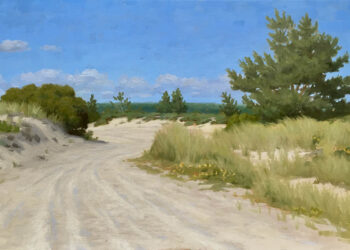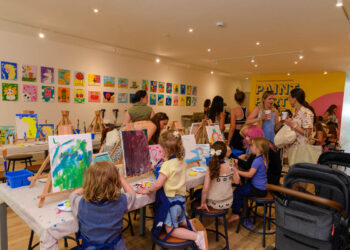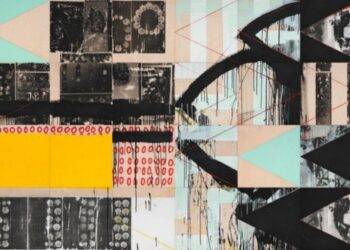On Saturday, August 1, from 3:00 p.m. to 6:00 p.m., East Hampton-based artist Katherine McMahon will be offering up free, sanitized dollar bills in the Hamptons as part of a collaborative piece entitled Free Clean Money. The outdoor art installation and performance will take place at Guild Hall in East Hampton.
Free Clean Money encompasses 500 $1 bills that will be displayed on silver platters, which McMahon will be continuously disinfecting. Musician Ray Angry’s The Protest will play on loop. All the money is available to the public for the taking – with no catch.
“Music and art are a unifying force as well as a universal language that we can use to create harmony within humanity. We have to use music and art as a tool to engage in difficult conversations,” Angry said about the collaboration.
We recently caught up with McMahon to learn more about the piece’s meaning.
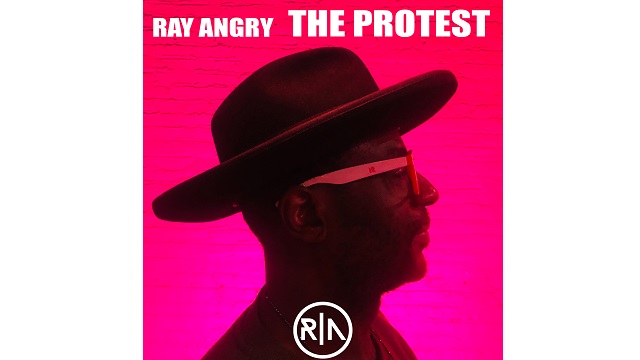 |
|
Ray Angry’s The Protest will be played on loop. (Courtesy Photo) |
Your primary subject matter is portraiture. This is quite a departure from that medium. So, tell us a little bit about the inspiration behind Free Clean Money?
KM: It definitely is. I think the inspiration for this collaboration was just in trying to make sense of things at the intersection of a global pandemic and civil unrest in this country. It’s also still about symbolism in that it’s questioning the symbolism of the portraiture depicted on paper money. I think after learning about the statue of Andrew Jackson coming down in particular resonated with me. Then you look in your wallet and see his face on the $20 bill. George Washington, pictured on the $1, was also a slave owner and obviously the first president of our country. Statues exist to pay tribute to forlorn heroes but we don’t actively pursue, need or want statues. Money, however, is a unifying force, something we all desire. It’s arguable that the paper money in our country needs revision in order to symbolically be more inclusive. And to that point, you wonder how, when, and if these revisions will happen. And if/when they do, would it change anything?
What do you hope people take away from the project?
KM: The collaboration is a statement about privilege, consumerism, the circulation of money, and a rumination on economic empowerment. We wanted to explore our relationship to money in the wake of a crisis. In the age of COVID-19, money has the capacity to transmit a deadly virus, but money also saves lives and empowers people and causes.
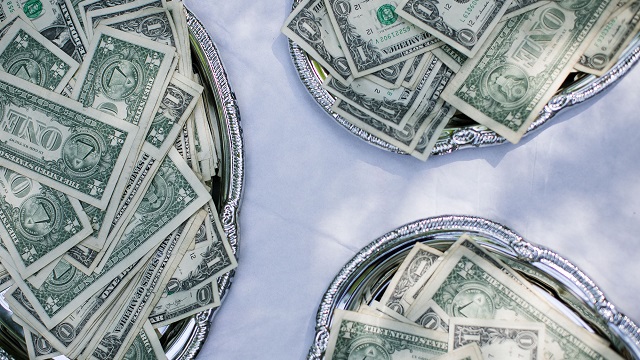 |
|
Free Clean Money will take place on Saturday, August 1. (Photo: Jessica Dalene) |
Ray Angry, who has performed with the Roots, Mark Ronson, Joss Stone and more, has composed a piece entitled The Protest that will play on loop. Why was music something you wanted to incorporate and have you ever collaborated with Ray before?
KM: Ray and I met because he produced one of my dear friend’s music. And he will actually be performing live with me at Guild Hall! Ray and I had discussed the possibility of collaborating on something in the past and after hearing some of his newer music, which were ruminations on the recent protests, I presented my idea and we felt the symbiosis between music and performative art would be powerful.
Once open to the public, the money will be offered to exhibition-goers with no other conditions. Why did you decide not to set guidelines?
KM: Well, we thought without guidelines the piece could function as a social experiment and also an opportunity to expand and transform the participant’s sense of place. In essence, the piece is activated by people’s participation and engagement. So we see it as a living thing until all of the money is gone.
Is there anything else you would like to add?
KM: I’m detaching myself from this amount of money in an effort to spread an idea and connect with people in a different sort of way. People may take away vastly different ideas from this performance, but I personally have been reflecting on the way I spend money and wondering who I’m empowering based on where and how I’m spending it. That being said, the irony of this performance is that money is never free and it’s never clean (viruses and bacteria can live on most surfaces for about 48 hours, but paper money can reportedly transport a live flu virus for up to 17 days).
Guild Hall is located at 158 Main Street in East Hampton. For more information, visit www.guildhall.org.


